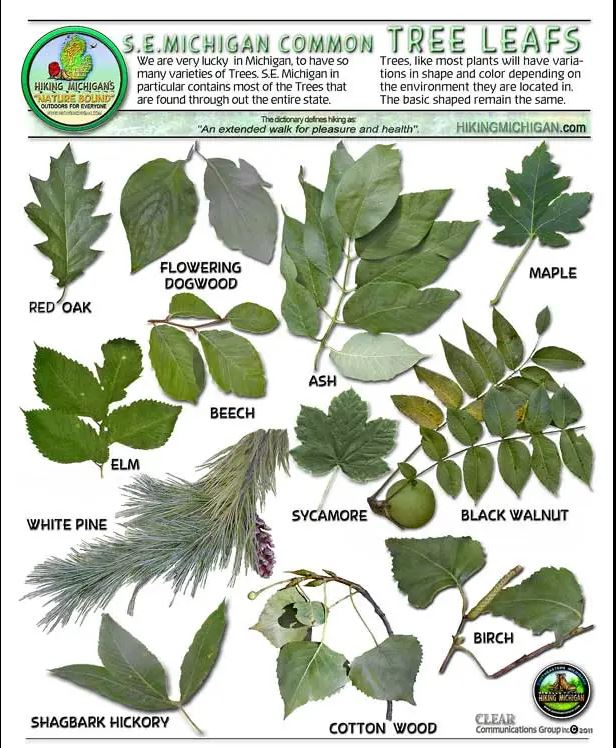Celebrated on the last Friday of April in Michigan, Arbor Day is a nationwide tradition that encourages people to plant trees. Humans have relied on trees for their very survival so you could say they are woven into the very fabric of who we are. We find nourishment in their nutrient-rich fruits, shelter in their limbs, healing in their medicinal compounds, protection as they absorb harmful pollutants, and wonder in their presence.
# 1 Trees clean the air so we can breathe more easily.
In the contiguous United States, urban trees remove an estimated 711,000 metric tons of air pollution every year. This pollution arises from the burning of fossil fuels and can reach dangerous concentrations in the largest cities as well as in neighborhoods near highways and factories. Trees’ leaves will filter this dangerous pollution, but only if they’re planted near the people who need them. Air pollution such as ozone, carbon monoxide, polycyclic aromatic hydrocarbons, nitrogen dioxide and sulfur dioxide is linked to a range of health conditions including bronchitic symptoms, heart attacks, high blood pressure, cognitive development problems in children, heart failure and increased mortality.
#2: Trees cool down your life.
Temperatures are rising and heatwaves getting longer due to climate change. Neighborhoods with lots of pavement absorb more heat and can be five to eight degrees hotter than surrounding areas. These areas also stay hotter later into the night, which is detrimental to our health. A tree’s shade acts like a natural air conditioning and can even keep down the energy costs of our actual air conditioning systems, which are increasingly working overtime.
#3: Trees filter your water, making your drinking supply cleaner and more reliable.
Trees store and filter more than half of the water supply in the United States by removing pollutants and sediments from rainfall and then slowly releasing the water back into waterways and underground aquifers. Thanks to trees, this naturally cleaner water is easier and cheaper to treat before it ends up in your tap. Stormwater runoff can increase people’s exposure to pollution, but trees intercept and filter stormwater, improving the water quality of runoff. With less contact with pavement, stormwater that has been absorbed and released by trees is cooler and has fewer pollutants when it enters local waterways.
#4 Trees provide a nutritious food source.
Trees provide various edible parts like leaves, fruits, nuts, and even inner bark. These parts are rich in essential nutrients like vitamins, minerals, and antioxidants, contributing to a diverse and balanced diet. Additionally, trees help improve soil health, which in turn enhances the nutritional value of crops grown alongside them.
#5: Trees provide powerful medicines.
Many trees contain compounds with medicinal properties, some of which are used in modern medicine and traditional practices. Forests provide a rich reserve of compounds that are key ingredients in 25% of all medicines. Tree and plant extracts contain a variety of bioactive compounds that help with everything from managing pain to staunching bleeding, sterilizing wounds, strengthening our immune systems, and soothing our nervous systems.
#6 Trees boost our mental and physical health.
Numerous studies have demonstrated that the presence of trees can improve mental health by reducing stress — living in areas with more green space correlates with lower levels of the stress hormone cortisol. Trees and green spaces are linked to less negative thoughts, less symptoms of depression, better moods, and increased life satisfaction. Access to nearby green space also contributes to better physical health by encouraging us to move around and exercise. Because we move around more when we have access to trees and parks, nature can help lower rates of obesity.
More information about the native trees on this poster can be found here: https://a-z-animals.com/blog/grand-trees-native-to-michigan/.


